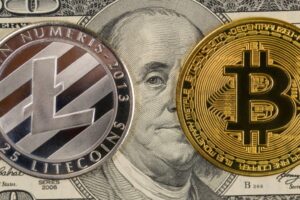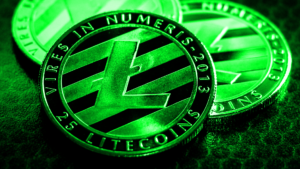Peter Thiel has spoken out on bitcoin and cryptocurrencies in what appears to be a grand strategy to maintain the United States’ leadership position on the world stage amidst a rising Eastern power.
Peter Thiel is a “pro-crypto” and “pro-Bitcoin maximalist,” but in a recent podcast with the Richard Nixon Foundation he also outlined the likelihood that cryptocurrencies could be undermining America.
Various interpretations made headlines after the comments, but as Anthony Pompliano pointed out on CNBC, Thiel is sending a message to the US to avoid falling behind on the crypto trend and competing with other countries on the global stage.
The venture capitalist and conservative political donor urged the US government to consider various regulations on crypto in the appearance in light of the country’s political situation with China.
During the appearance held for members of the Richard Nixon Foundation, he said: “I do wonder whether at this point, Bitcoin should also be thought [of] in part as a Chinese financial weapon against the US It threatens fiat money, but it especially threatens the U.S. dollar.” He added: “[If] China’s long Bitcoin, perhaps from a geopolitical perspective, the US should be asking some tougher questions about exactly how that works.”
Thiel was joined by former Secretary of State Mike Pompeo and former National Security Advisor Robert O’Brien. The discussion between Thiel, who has been an forthcoming critic of (American) companies that do business with China, and two hawkish ex-member of the Trump administration, were mostly focused on US-China relations.
In his talk, Thiel expanded on previous criticisms of Alphabet’s Google, which he accused of working against American interests in a 2019 speech. On Tuesday he pressed employees in the company’s artificial intelligence division as to whether their tech was being used in China’s Xinjiang region, where the US says the country has detained ethnic Uyghurs in concentration camps (which US official have said amounts to genocide). Thiel said their answer was “Well, we don’t really know – and don’t ask any questions.” He continued: “You have this almost magical thinking that by pretending that everything is fine, that’s how you engage and have a conversation.”
The Chinese Communist Party has denied mistreatment of ethnic and religious minorities in Xinjiang. In a statement, Google said it doesn’t work with the Chinese military and is “proud to continue our long history of work with the US government, including the Department of Defence, in many areas including cybersecurity, recruiting and healthcare.”
Thiel, who left Silicon Valley in 2018 calling it a “one-party state”, let loose on the whole American tech sector, noting especially that Apple made most of its devices in China where labour standards are laxer than in the US and in Europe. He said: “Apple is probably the one [tech company] that’s structurally a real problem” for U.S. interests, he said. “Apple is the one that has real synergies with China.”
Thiel also suggested for the US to follow India in banning TikTok, the Chinese social media app by ByteDance, and which he called “this sort of incredible exfiltration of data about people“. He noted that if it were banned, TikTok would likely be replaced by similar applications, as happened in India.”I don’t think it was like a tremendous, tremendous loss” in India, he said.
His comments on TikTok coincide with Facebook’s take on the Chinese company, which also treats it as a threat to US values. However, Thiel also criticised Facebook itself for nurturing “woke politics”, noting that the company did not take a firm stance on protests in Hong Kong last year.
“There were more employees at Facebook who were born in China than who were born in Hong Kong,” he said. “And the Chinese nationals actually said that, you know, it was just Western arrogance, and [the company] shouldn’t be taking Hong Kong’s side … And the rest of the employees at Facebook sort of stayed out of it.”
Finally, the entrepreneur also criticised Facebook – and other tech companies for “de-platforming President Trump,” with direct reference to the company’s decision to ban the US President from the platform on January 6th after the anti-climactic events at the US Capitol. “There’s been outright censorship,” Thiel said. “And when you do it with the President of the United States, that does feel like you have really crossed some kind of Rubicon.”
Thiel’s appearance with Pompeo along with his strong political statements could have implications for the 2024 presidential race. The former secretary of state is widely seen as a potential candidate for the Republican nomination and Thiel has been more than willing to back figures aligned with Trump. In fact, the entrepreneur was a major backer of Trump in 2016 and has recently donated $10 million to support the Senate candidacy of conservative figure J.D. Vance.
When seen in context, Thiel’s comments on bitcoin and cryptocurrencies form part of a grand geo-political perspective that seeks to maintain the US’ position on the global stage. In fact, Thiel also likened the Euro to a ‘Chinese weapon against the Dollar’, so his concerns apply to other currencies as well.
While unambiguously reiterating his support of bitcoin as a “pro-bitcoin and crypto maximallist”, Thiel recognises that by not participating in the burgeoning crypto economy the US would help create an attack vector for the Chinese Communist Party against the United States.
His seemingly conflicting take on bitcoin and cyrptocurrencies has but one solution – it is an invitation for the US Government to take bitcoin seriously, and in doing so potentially becoming a large holder and miner of the limited digital asset.
Subscribe to the semi-weekly newsletter for regular insight into bitcoin and crypto. Go on. It’s free.
Join the telegram channel for updates, charts, ideas and deals.
Did you like the article? Share it!


